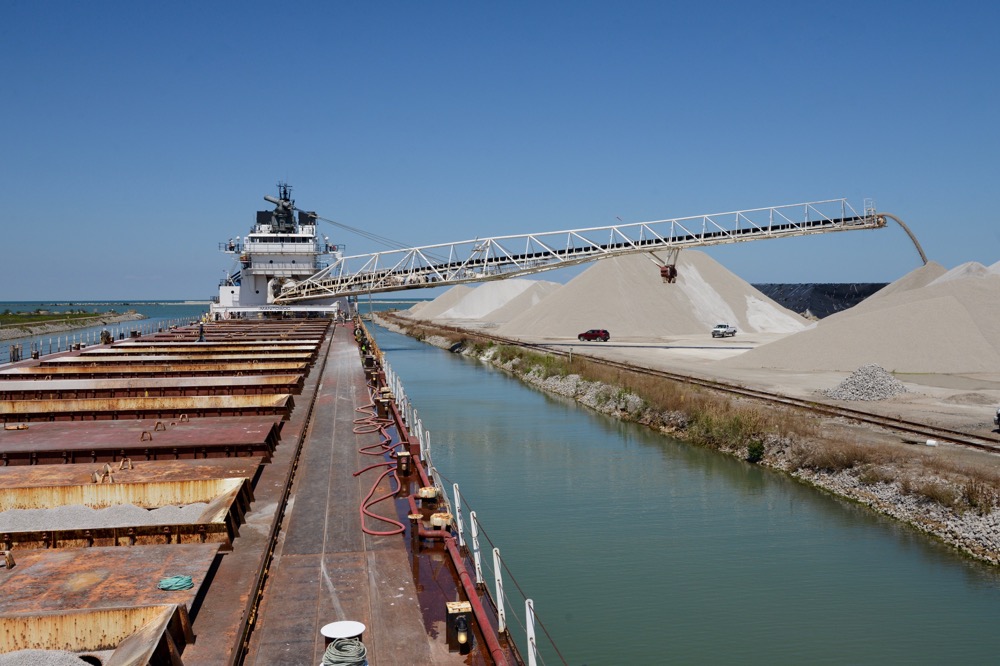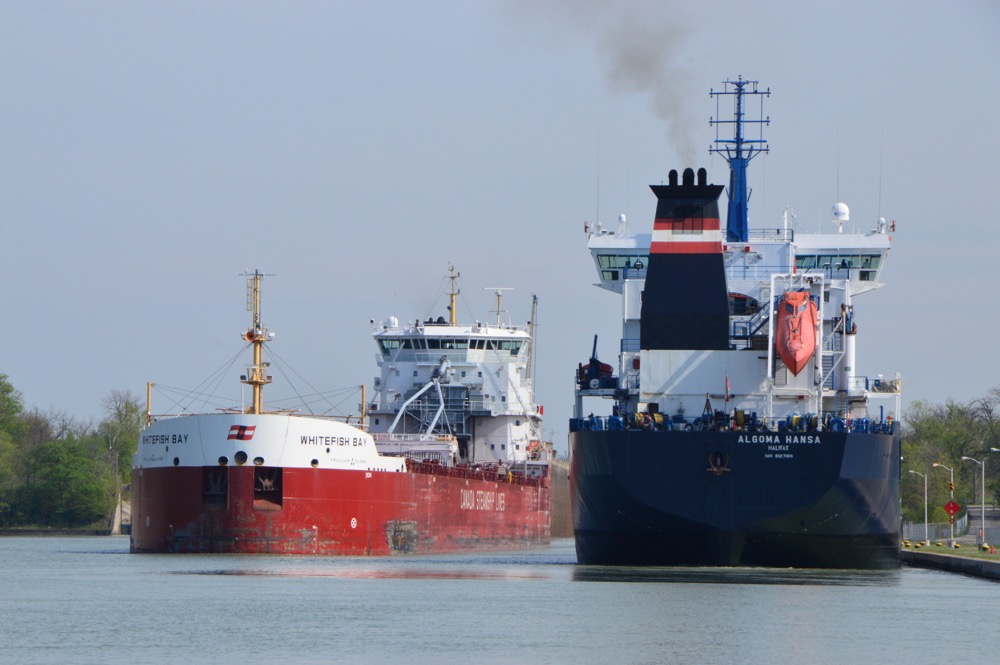Tonnage reports from Canadian ports for the first five weeks of the Great Lakes-Seaway shipping season are mixed, reflecting the impact of the COVID-19 pandemic.
“The shipping industry is starting to notice changes in demand for certain commodities,” says Bruce Burrows, President and CEO of the Chamber of Marine Commerce. “We continue to see an increased demand for Canadian grain for production of bread and pasta, and salt shipments remain strong to replenish municipal reserves following the winter. On the other hand, some Ontario ports are reporting declines in shipments of construction materials like aggregates and petroleum products due to the economic impact of COVID-19. In our industry, it can take months before the full impacts of an economic downturn take effect, so we will be watching closely as the situation evolves over the coming weeks.”
The Port of Thunder Bay and prairie grain farmers have been busy due to the increased demand for grain in Europe and North Africa as the global pandemic has left voids in the grain supply. Thunder Bay’s figures for part of March and April indicate grain volume increased by 38 per cent compared to the same period last year.
“Amid the pandemic, with enhanced precautionary measures in place, partners along the supply chain from Canadian farms to merchant ships are demonstrating the commitment of the Canadian grain industry to fill the increased demand,” says Tim Heney, Chief Executive Officer at the Port of Thunder Bay. “The capability of this supply chain and the commitment of the partners are shining through despite the challenges of this unprecedented time. They are keeping commodities flowing to parts of the world that could otherwise see a food shortage.”
The Windsor Port Authority has also been busy with grain shipments in the first month and a half of the season. Grain and salt shipments were slightly ahead of the same time period in 2019, however aggregate shipments and total tonnage are down due to COVID-19.
“Total tonnage at the Port of Windsor has decreased by 11.5 per cent compared to this time in 2019,” says Steve Salmons, Windsor Port Authority President and CEO. “The tonnage decrease in aggregates is related to the economic impact of COVID-19 on the construction industry due to the Provincial Emergency Order in Ontario. Overall projections for 2020 still remain favourable to meet or exceed our 2019 figures.”
Throughout March and April, bulk cargo shipments remained strong at the Port of Toronto as shipments of cement, steel, salt and sugar were received. However the global pandemic has made an impact on the Port’s tourism sector.
“Though the global COVID-19 pandemic has had an impact at the port, with federal regulations delaying the start of the 2020 cruise ship season and restricting commercial and recreational boating in the Toronto harbour, port tonnage has remained consistent with this time last year and is well positioned for the remainder of the shipping season,” said Geoffrey Wilson, CEO of PortsToronto.
At the Port of Hamilton and Port of Oshawa, tonnage totals are in line with their preceding five-year averages, despite the impact of the global pandemic. The Port of Hamilton saw 880,257 metric tonnes of cargo come through in April, down slightly from April 2019. The Port saw an 18 per cent drop in petroleum products due to the pandemic and decreased demand in the region.
The Port of Oshawa saw an 11 per cent increase in cargo levels compared to April 2019, primarily from grain and construction material shipments. Fertilizer maintained normal volumes through April, as the Oshawa and Hamilton ports continue their focus on supporting and expanding terminal capacity for the farming community.
Hamilton has attracted major investment and new terminal capacity in recent years to enable growth for crop input companies like Sylvite and Agrico, serving the regional farming community.
“Maintaining an efficient agricultural supply chain has never been more important to support farms across southern Ontario,” said Ian Hamilton, President and CEO of HOPA Ports. “Food supply is top of mind for many of our trading partners, so this could present a clear opportunity for local grain producers. There has been commitment from all of our supply chain partners to support Canadian farmers at this crucial time, and no doubt we will continue to do so. These are uncertain times, but as we ride out this global crisis, there may be new opportunities for storage and warehousing in some cases, while we wait for demand to stabilize for petroleum and other products.” (photo Paul Beesley)






